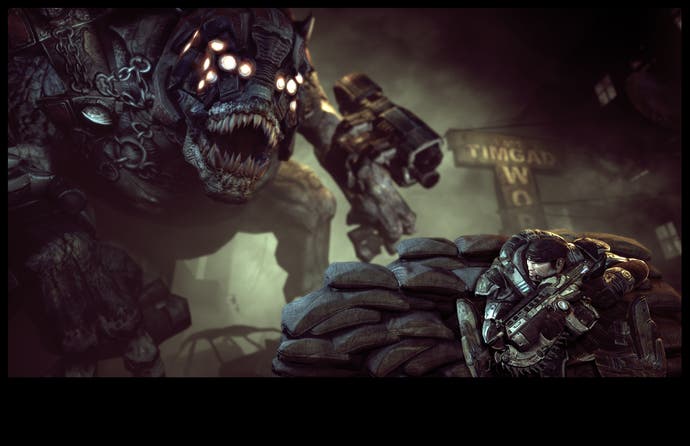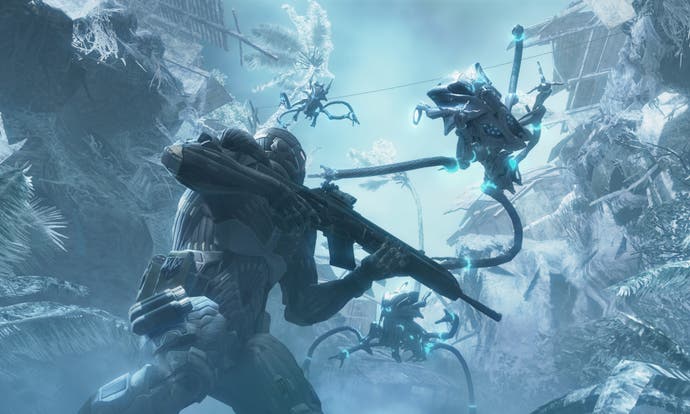Microsoft's Kevin Unangst
Games for Windows: one year on.
In February 2006, then Xbox boss Peter Moore took to the stage at the DICE Summit to say sorry. "I want to apologise," he told the audience, "For the dereliction of duty to our company's number one platform, the PC, in terms of gaming." He admitted Microsoft had been "a little distracted" in the run-up to the launch of Xbox 360, adding, "Mea culpa. We've been busy."
But things would change, Moore pledged, with Games for Windows. The idea was to create a new brand for PC games which would be seen by consumers as being synonymous with quality, reliability and ease of use.
Microsoft does not charge developers or publishers a royalty fee for the brand, but there are around 25 requirements to be met before games can bear the GfW logo. They must be easy to install, for example, support widescreen displays and offer users the option to set parental controls. In return, Microsoft promised to build better relationships with retailers, invest more in global advertising and make games a main feature of Vista in a bid to boost the profile of PC gaming.
By the end of 2007 more than 50 titles had been released under the GfW name, including top-sellers such as BioShock, Gears of War and Crysis. But it wasn't an easy ride for Microsoft. Games for Windows Live came under heavy criticism, there were patch issues with Gears of War and so far only two games supporting cross-platform play between PC and Xbox 360 have been released. And despite Microsoft's efforts, high profile industry figures such as Epic's Cliff Bleszinski are still bemoaning the state of PC gaming.

So at this year's Game Developers Conference, we welcomed the opportunity to put some of these issues to Kevin Unangst, senior global director of Games for Windows. Here he discusses what's next for GfW Live, why retail sales don't tell the whole story and how the PC Gaming Alliance plans to set the record straight.
When you add up all the things we've done in the first year, we've moved on quite a bit. We're absolutely not done; we'll continue to invest in things like Live and our online service.
We're also investing in the XNA tools that let people create games that can run on the PC, console and the Zune. We're making sure anyone who wants to can create games for any of our platforms. That is a very significant difference between our approach and what you see from Sony and Nintendo.
When you look at all the pieces put together, I think this has been a fantastic foundational year for Games for Windows. We've made a lot of progress. With the title line-up we have and the technology that's in place, 2008 is going to be even better.
We'll continue to invest in it. We've heard about a lot of things poeple want, things like digital distribution. At the end of the day our goal is to be the best PC online service for gaming. We've learned a lot this year and we're listening to developers.

It goes back to things we've learned. Going out of the gate, we weren't as clear as we should have been that Games for Windows Live on the PC is free. You don't have to pay for Gold. If you want to play cross-platform games, that's when you need a Gold subscription...
We were not as clear as we could have been. People assumed we were trying to bring the Xbox model over to the PC, which we were not.
Anybody can get a free Silver account on the PC, and if I want to play all my friends on Gears of War on the PC it won't cost me anything. Our challenge is to be clear on the message we're not charging for Games for Windows Live.
We have gotten the feedback that says, 'There's no Marketplace', 'Where are all the other features Xbox Live Gold members get?' The users have to decide - has it been worth USD 5 per month, or less, to play with my friends on the games I care about? It's really only been Shadowrun and Universe at War. Particularly if you're only playing games like Universe of War, I think it's been a good deal.
But are we talking to the partners and understanding how to get clearer? Will we continue to invest to bring more value? Absolutely. It's really only been 10 months on the market. We had to build from there, and I think you'll see more things from us in the future.

